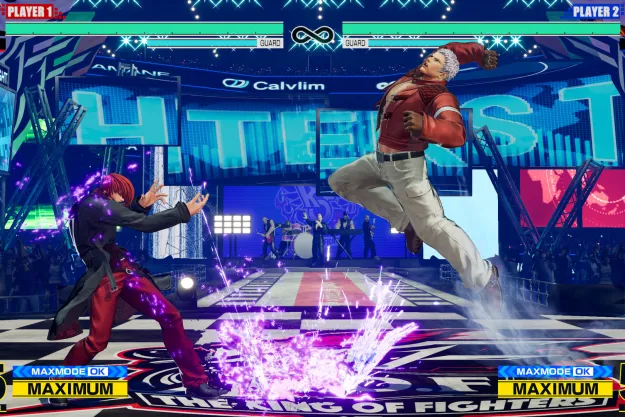Manufacturers are trying to batten down the hatches and they are shedding any costs they can to stay afloat.
Maxtor recently announced, “Effective October 1, 2002, all Maxtor desktop drives will carry a one-year standard warranty.” Did you get that “all Maxtor desktop drives” part??? After posting the Maxtor story, The Inquirer (www.theinquirer.net) recently posted another story, bringing to light the fact that both Seagate and Western Digital were following suit. Caveat Emptor (Buyer Beware.)
Apparently, beginning October 1, Maxtor is axing its warranty from three years to one year. They tried to slip it into a press release that talked about Maxtor’s latest and greatest products. Maxtor’s deplorable precedent set the stage for what was to come next. . . . And people thought IBM’s Hard Drive advisories were bad. At least IBM retained its three year warranty policy. . . for now.
Here’s an excerpt of a letter from Seagate:
“September 12, 2002
Dear
Seagate® would like to inform you that beginning October 1, 2002, all Seagate desktop and personal storage products will ship with a one-year limited warranty.
This warranty change will affect all generations of products that are shipping today; if a product ships on or after October 1, it will be covered by the one-year warranty policy. This warranty change will not affect Seagate enterprise products. All other aspects of the Seagate warranty administration will remain unchanged.” -the whole letter is at The Inquirer.
Here’s a statement from Western Digital’s warranty page:
“Western Digital has adopted a new warranty policy effective October 1, 2002. Western Digital WD Caviar Special Edition hard drives are covered under warranty for a three-year period. All other Western Digital products will be covered under a standard warranty for a period of one year, unless indicated otherwise on retail packaging. Products purchased before October 1, 2002 are covered under the product’s original warranty.
Extended warranty is available for an additional fee. For more information, please visit our warranty policy page. “
Whether you buy Maxtor, Western Digital or Seagate products does not matter. What matters is what is happening to the industry and the consumer. The manufacturers are taking a cost-benefit analysis of their warranty policies and trying to minimize expense and maximize profit. They benefit and the consumer suffers. How many hard drives do you think they write-off over three years, due to returns, failures and malfunctions? Suffice it to say, it’s a lot. Now, how many of those are in the first year? . . . And what if we turn the second and third year’s write-offs into positive cash flow, by making the consumer buy new hard drives to replace their broken ones. Suffice it to say, that’s a significant chunk of change.
The manufacturers claim this is necessary for their survival, and will help them continue to bring to market innovative and reliable products. Reliable? If their products are so reliable, how about backing it up with some guarantees. Hard drive prices have fallen significantly over the years, but they are not so cheap that consumers can afford to drop $120 every time one breaks. Nor should they have to. When a consumer buys a computer, they anticipate having it for a few years. What kind of confidence can be instilled in the consumer when their system is rendered useless because the hard drive failed? What kind of frustration goes through the consumer’s mind when everything they’ve done and saved on their computer is now GONE!
A one, two or even three year warranty, in and of itself, is not going to prevent a hard drive from failing. The simple truth is hard drives fail. They can be cantankerous pieces of technology susceptible to any and all elements in the environment (heat, moisture, static discharge, surges, etc). However, warranties provide a value to the product it covers. There is reasonable piece of mind and reassurance that comes with a substantial warranty. Moreover, there is piece of mind and reassurance in the technology.
It is plausible that the quality and reliability of hard drives may not change, but it’s even more plausible that it will. Hard drives cost a lot to make, especially when the manufacturer has to make sure they last at least three years. There is a hierarchy of parts suppliers who provide high quality, mid-level, good, low and cheap quality parts. With every level of quality the cost of those parts goes up. With that, what’s going to keep a company from using lesser grade parts? Their profound desire to build rock-solid products? No, folks. It is the almighty dollar that drives the decision making, and it has become evident that quality and reliability come second to the profit margin.
Unfortunately, manufacturers are taking a short-sighted approach to the problems they currently face. This movement toward lowering warranty coverage could in fact backfire and have dire consequences beyond the balance sheet. By lowering the warranty period, they minimize their liability and thus their expenses. Yet, they undermine the consumer’s confidence in the product, the company and the whole industry at the same time. If consumers lose confidence in certain technology, they are less likely to spend their hard-earned dollars to buy that technology. The lack of spending then perpetuates and prolongs the current state of the tech industry, and a downward spiral ensues. Where will it all end?
No. There is no reassurance in a particular technology when a manufacturer does not stand solidly behind their product and minimizes their exposure to their product’s failure. If manufacturers are losing too much money from warranty expenses, perhaps they should look into making hard drives more reliable, rather than trying to find ways to sell more hard drives.



